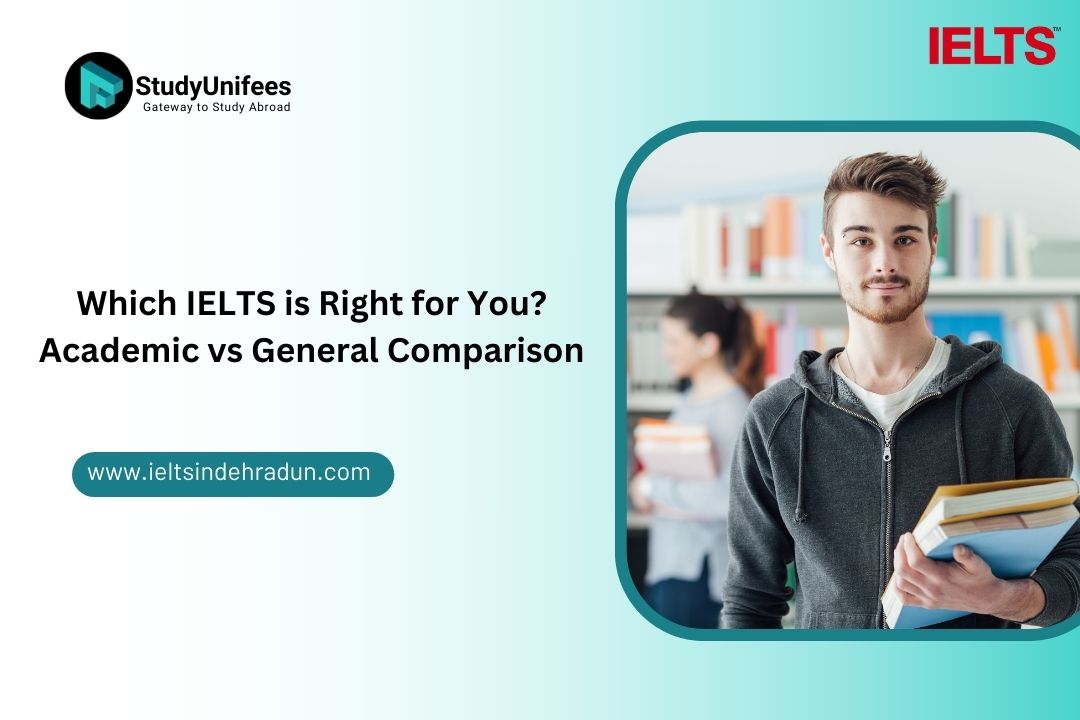
The International English Language Testing System (IELTS) is a widely recognized English language proficiency test for individuals who wish to study, work, or migrate to English-speaking countries. There are two types of IELTS tests available: Academic and General Training. While both tests assess the four language skills – listening, reading, writing, and speaking, they have some key differences in terms of content and purpose. This article aims to provide a comprehensive comparison of the Academic and General IELTS tests to help you determine which test is the right choice for you.
Key Differences Between Academic and General IELTS
Before delving into the specifics of each section, it is important to understand the overall differences between Academic and General IELTS.
Academic IELTS
- Designed for individuals who are planning to pursue higher education or professional registration in an English-speaking institution.
- Suitable for those who need to demonstrate their academic English language proficiency.
- Content is more academic in nature, with tasks and texts that reflect the types of materials encountered in an academic environment.
General Training IELTS
- Meant for individuals who are looking to migrate to an English-speaking country for work or immigration purposes.
- Assess the practical language skills needed in everyday social and workplace contexts.
- Contains tasks and texts that are generally encountered in a non-academic environment.
Now that we have a grasp of the general differences, let’s take a closer look at each section of the IELTS test.
Listening Section: Academic vs General
- The LIstening section is exactly the same for both tests. You will hear 4 conversations and talks and you will have to answer 40 questions from these conversations and talks. The test will give you ample time to preview the questions and the answers are always in order. The speakers employ a variety of accents but the British accent and the Australian accent are most commonly used.
Reading Section: Academic vs General
Academic IELTS Reading
- Consists of three lengthy and complex texts taken from books, journals, magazines, or newspapers.
- Tests the ability to comprehend and analyse academic texts, including understanding vocabulary in context and recognizing the author’s argument or viewpoint.
- Requires skills such as skimming, scanning, and in-depth reading to answer a variety of question types, such as multiple-choice, matching, and True/False/Not Given.
General Training IELTS Reading
- Contains three sections with texts based on everyday contexts.
- Assesses the ability to read and understand practical texts, such as advertisements, brochures, or workplace-related documents.
- Requires skills such as finding specific information, understanding the main idea, and identifying the writer’s purpose.
Writing and Speaking Sections: Academic vs General
Academic IELTS Writing
- Comprises two tasks: Task 1 requires test-takers to describe, summarise, or explain information presented in a graph, chart, or diagram, while Task 2 involves writing an essay in response to a prompt on a general academic topic.
- Evaluates the ability to express ideas coherently and logically, use appropriate vocabulary and grammar, and present arguments in a clear and structured manner.
General Training IELTS Writing
- Also includes two tasks: Task 1 requires test-takers to write a letter based on a given situation, while Task 2 involves writing an essay on a general topic.
- Assesses the ability to communicate effectively in everyday situations, such as writing a formal or informal letter, expressing opinions, or providing explanations.
Academic/General Training IELTS Speaking
IELTS speaking is the same for both tests.
- Consists of three parts: an introduction and interview, a short individual presentation, and a discussion.
- Focuses on academic-related topics and assesses the ability to engage in sophisticated conversations, express opinions, and discuss abstract ideas.
In conclusion, the choice between Academic and General Training IELTS depends on your specific goals and circumstances. If you plan to pursue higher education, academic registration, or work in a professional field, Academic IELTS may be the appropriate choice.
On the other hand, if your purpose is migration or work in a non-academic environment, General Training IELTS would be more suitable. Understanding the key differences in content and focus between the two tests can help you make an informed decision and prepare effectively for your IELTS journey.
If you need further guidance or assistance in preparing for the IELTS, Study Unifees is here to help. Our experienced tutors and comprehensive study materials will ensure you are well-prepared for the test. Contact us today to kickstart your IELTS journey and unlock endless opportunities!
